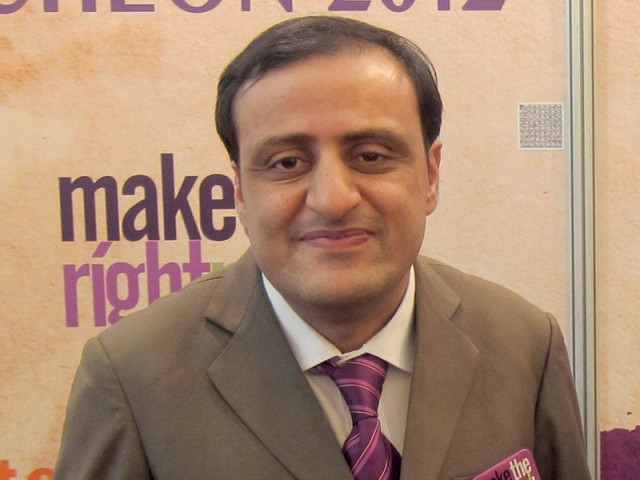Mainstreaming PWDs: Rights activist selected as promoter for international campaign
"Many PWDs are living in isolation due to social taboos", says Sheikh.

Fifteen young people with various disabilities gathered in Islamabad to break barriers of social exclusion and develop role models for society in 1997.
The group, led by Muhammad Atif Sheikh, created the Special Talent Exchange Programme (STEP) to work for the welfare of persons with disabilities (PWDs).
Sheikh, now 37 and the president of STEP, a teacher, trainer and a consultant was recently acknowledged for his services by the UN Economic and Social Commission for Asia and the Pacific and was selected as one of seven promoters of “Make the Right Real Campaign” under the Asia-Pacific Disability Right Champion Award.
These promoters will help accelerate the implementation of the Incheon strategy adopted at a meeting in Korea. The 10-year Incheon Strategy aims to reduce poverty and enhance work and employment prospects for PWDs.
“Being selected as a promoter is not just an honour but also a milestone in our struggle for a rights-based inclusive society,” Sheikh told The Express Tribune.
He has represented Pakistan in various international forums on disability and development and established affiliations with global partners and exchanged leading persons with disabilities for training and capacity building.
Many PWDs are living in isolation due to social taboos, deprived of their right to education, employment and decision making, Sheikh said. Assistive devices are very expensive, restricting their mobility. It is unfortunate that they are an uncounted population and there are no reliable statistics on PWDs, he added.
The publication of a handbook, “Disability Framework in Pakistan”, in 2007 and a translation of the UN Convention on the Rights of PWDs in 2008 aim to sensitise PWDs about their rights in the country, he said.
In 2009, STEP initiated leadership development among PWDs and organised the first national conference in 2009 that resulted in the Islamabad Declaration for PWDs, Sheikh said.
Moreover, in the past 20 years, Pakistan has introduced a special education system, created rehabilitation and vocational training centres and the National Council for the Rehabilitation of Disabled Persons.
The country also adopted the National Policy for Persons with Disabilities 2002, he added.
But these steps are far from sufficient. Sheikh said, “I hope the implementation of [Incheon strategy] will further help address PWDs’ issues in the country. And for that every individual has to play his part.”
Published in The Express Tribune, November 12th, 2012.



















COMMENTS
Comments are moderated and generally will be posted if they are on-topic and not abusive.
For more information, please see our Comments FAQ